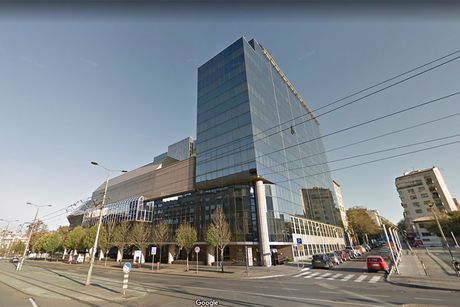Central bank's first decision in 2024: Has the key policy rate been raised?

The NBS Executive Board decided today to keep the key policy rate on hold, at 6.50%. The rates on deposit (5.25%) and lending (7.75%) facilities also remained unchanged, the Serbian central bank said.
We carry the NBS statement in its entirety:
The decision was motivated by further dissipation of global inflationary pressures, the downward trajectory of inflation at home and its expected return within the target tolerance band by mid-2024. As the key policy rate and required reserve ratios were already lifted in the prior period, the relevant effects will continue to impact inflation going forward.
The pass-through of past monetary tightening to the rates in the money, lending and savings markets, and subsiding one-year ahead inflation expectations of the financial and corporate sectors signal the efficiency of the monetary policy transmission mechanism.
The Board also acknowledged the further easing of cost-push pressures and inflation going down globally. Though the global economy ended last year on a healthier footing than expected, its growth is below a long-term average and will slow this year. This, along with inflation’s decline, raises the expectations that leading central banks – the ECB and Fed may begin to ease their monetary policies earlier.
Still, the labor market pressures remain strong, with these central banks highlighting them as the key factor that mandates caution in monetary policy conduct. Besides, given China’s impact on global trade and world prices of primary commodities, its macroeconomic outlook and the persisting geopolitical tensions remain the key sources of uncertainty that also call for caution.
The Executive Board stressed that y-o-y inflation in Serbia continued to recede as projected by the NBS and that according to SORS estimates, it fell to 7.6% in December, almost half the level from end-2022. As in previous months, inflation retreated mostly on account of monetary policy measures, easing of global cost-push pressures, lower imported inflation and a good agricultural season.
The Executive Board noted that core inflation (CPI excluding food, energy, alcohol and cigarettes) trended at a much lower level than headline inflation throughout the year, thanks to the undertaken monetary policy measures. Going forward, the Board expects inflation to recede further and return within the target tolerance band around mid-year, coming close to the 3% target at end-2024. This will be facilitated by monetary tightening, slowdown in imported inflation and the anticipated continued decline in inflation expectations.
According to SORS, GDP growth in 2023 is estimated at 2.5%, which is in line with the NBS projection. Activity growth was recorded in all production and services sectors. The biggest growth was made by the energy, agriculture and construction sectors, the latter thanks to the stepped-up implementation of infrastructure projects. The manufacturing industry showed resilience in conditions of slower external demand by recording increased production and exports.
Favorable developments continued in the labor market as well, recording further growth in employment, decrease in unemployment and growth in real wages. At the annual level, average wage increased by 15.0% in nominal terms, while its growth in real terms was around the real GDP growth rate, attesting to the preserved purchasing power of households.
Assuming global inflationary pressures ease and the euro area economy recovers, on the one hand, and the implementation of the planned investment projects in transport, energy and utility infrastructure accelerates as expected, on the other, Serbia’s GDP growth will pick up to 3.0–4.0% this year.
The Executive Board judges that personal consumption will also be an important driver of growth, though not to the extent that would give rise to major inflationary pressures, and so will fixed investments that boost potential output as well.
The NBS will continue to keep a close eye on key inflation factors in the domestic and international environment and make monetary policy decisions based on the projected inflation profile. It will also remain committed to maintaining financial stability and supporting continuous economic growth, as well as employment and a favorable investment environment.
The next rate-setting meeting will take place on 8 February.
(Telegraf Biznis)
Video: Macut: Posvećenost evropskim integracijama je apsolutni prioritet
Telegraf.rs zadržava sva prava nad sadržajem. Za preuzimanje sadržaja pogledajte uputstva na stranici Uslovi korišćenja.

